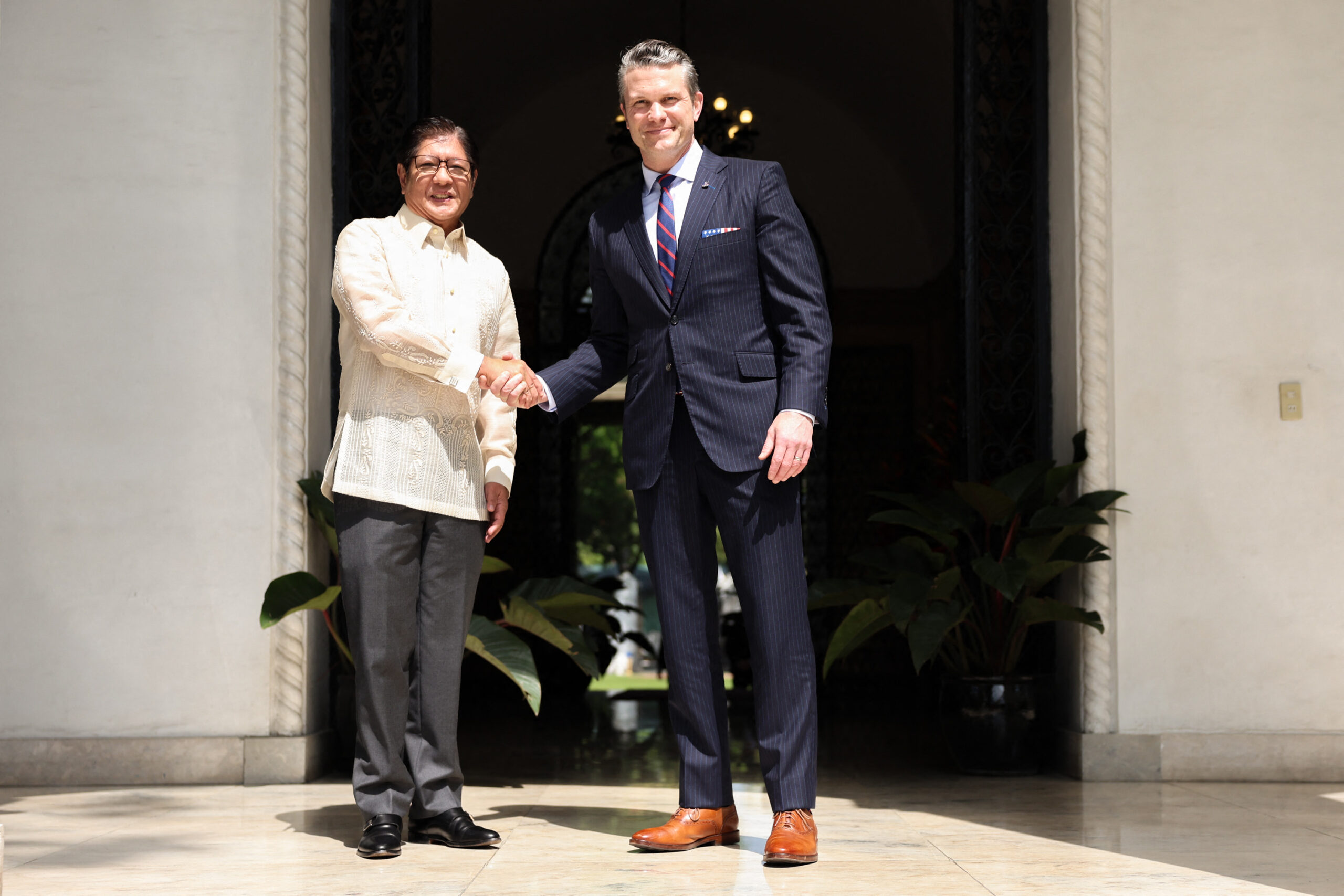China taunted the United States on Thursday, claiming that Washington has what it called an “astonishing historical record in reneging on promises and betraying allies.”
Newsweek has reached out to the U.S. State Department for comment via its website. The Philippine Embassy in Beijing did not immediately respond to a request for comment.
Why It Matters
The remarks, made by Senior Colonel Wu Qian, spokesperson for China’s Ministry of National Defense at a press conference on Thursday, were in response to a question on the issue of Washington’s security commitments to Manila. The Philippines is a major security ally of Washington in the Indo-Pacific region and the countries have signed a mutual defense treaty.
However, territorial disputes between Beijing and Manila over the South China Sea remain unsettled, and their maritime forces continue to engage in standoffs or clashes, raising the specter of a future scenario that could draw the U.S. and China into conflict.
The Chinese Foreign Ministry on Tuesday warned the Philippines was “playing with fire” in cooperation with the U.S. that targets China or harms its interests. An American missile system is currently deployed in the Southeast Asian nation, putting China within its range.
BASILIO SEPE/AFP via Getty Images
What To Know
Military cooperation between the U.S. and the Philippines should not harm other nations’ security interests or undermine regional peace and stability, said Wu during a press conference in Beijing.
The Chinese spokesperson was asked about U.S. Defense Secretary Pete Hegseth‘s visit to the Philippines during his first official trip to the Indo-Pacific region. He had paid visits to Hawaii and Guam before arriving in Manila, and Japan will be the final stop of his tour.
While Wu did not elaborate on his remarks on America’s promises and alliances, it is reported that Washington has considered withholding its military support from NATO allies that fail to allocate a set percentage of gross domestic product (GDP) to defense.
This significant move could challenge Article 5 of NATO’s founding treaty, which is the alliance’s enduring principle of collective defense—an attack on one is an attack on all.
During a meeting with Philippine President Ferdinand Marcos Jr. in Manila on Friday, Hegseth emphasized the “ironclad commitment” of the U.S. to the Philippines, claiming that President Donald Trump is “very committed” to deepening the treaty-based alliance.
“Deterrence is necessary around the world, but specifically in this region in your country, considering the threats from the communist Chinese,” Hegseth told Marcos with regard to the tensions in the South China Sea. “Peace through strength is a very real thing.”
The Pentagon chief also raised the idea of expanding military cooperation between the two allies, saying such a move would be “mutually beneficial” and “critically important” for both nations.
What People Are Saying
U.S. Defense Secretary Pete Hegseth said on Friday during his meeting with Philippine President Ferdinand Marcos Jr.: “Friends need to stand shoulder to shoulder to deter conflict to ensure that there’s free navigation. Whether you call it the South China Sea or the West Philippine Sea, we recognize that your country has stood very firm in that location and in defense of your nation.”
The U.S. State Department wrote on its website: “An irreplaceable U.S. ally for seven decades, the Philippines has long been at the forefront of preserving the free and open regional order in Southeast Asia and the greater Indo-Pacific region.”
What Happens Next
It remains to be seen whether the Trump administration will push the Philippines to boost its defense spending to deter China’s aggression. It had previously urged Japan, which is another U.S. treaty ally in the Indo-Pacific region, to spend far more on its defense.


